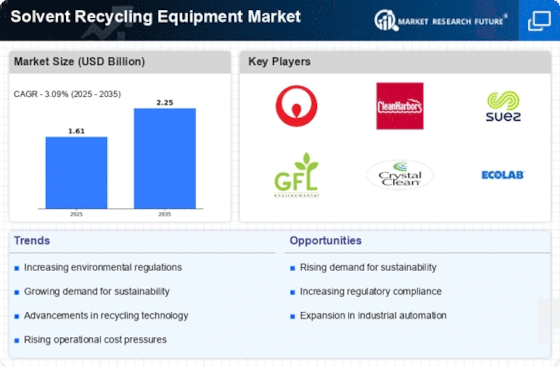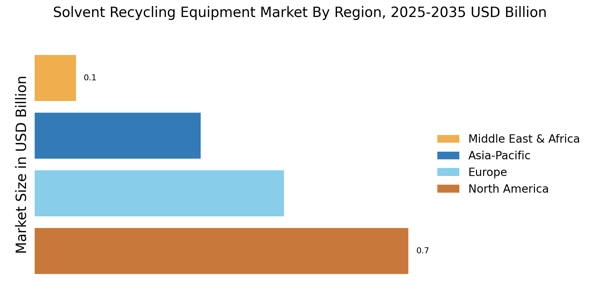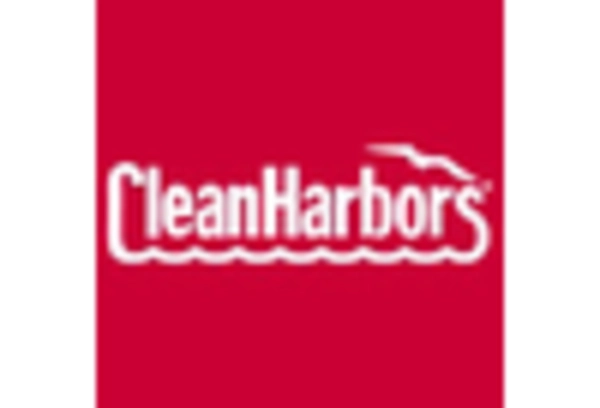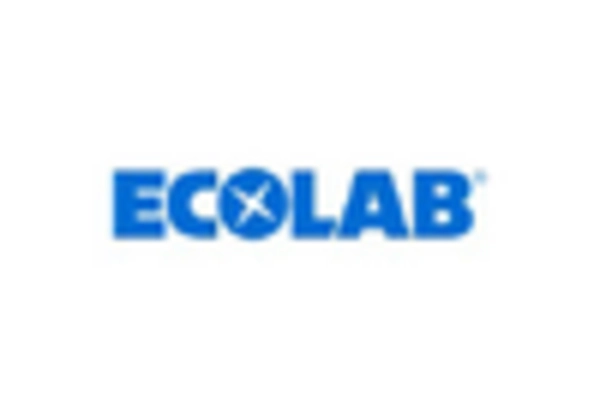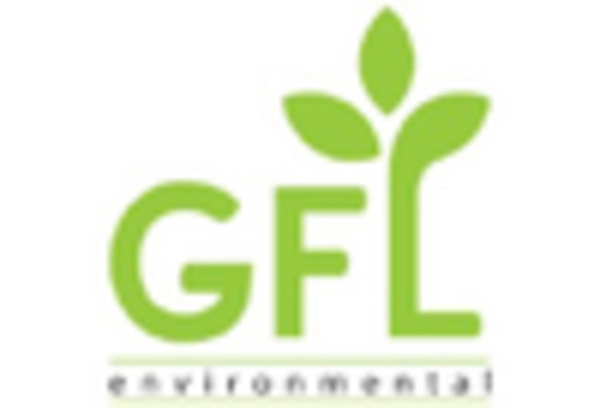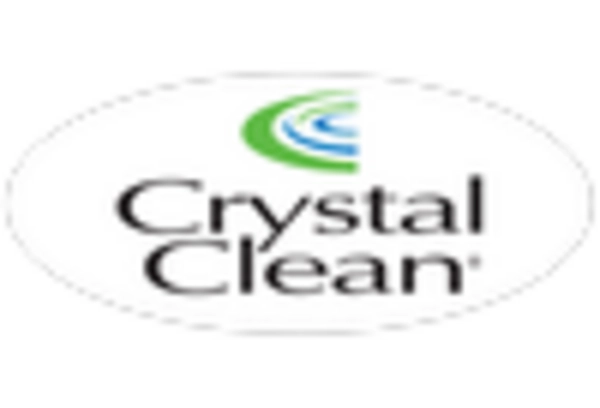Technological Innovations
Technological advancements play a pivotal role in shaping the Solvent Recycling Equipment Market. Innovations in recycling technologies, such as advanced distillation and filtration processes, are enhancing the efficiency and effectiveness of solvent recovery. These developments not only improve the quality of recycled solvents but also reduce energy consumption during the recycling process. As industries increasingly adopt these cutting-edge technologies, the market is expected to witness a surge in demand for sophisticated solvent recycling equipment. The integration of automation and smart technologies into recycling systems may further streamline operations, making them more appealing to manufacturers.
Rising Environmental Concerns
The increasing awareness regarding environmental sustainability appears to be a primary driver for the Solvent Recycling Equipment Market. Industries are under pressure to minimize waste and reduce their carbon footprint. As a result, many organizations are investing in solvent recycling technologies to comply with environmental regulations and to promote eco-friendly practices. The market for solvent recycling equipment is projected to grow at a compound annual growth rate of approximately 6.5% over the next five years, indicating a robust demand for sustainable solutions. This trend is likely to encourage manufacturers to innovate and develop more efficient recycling systems, thereby enhancing the overall market landscape.
Regulatory Pressures and Compliance
Regulatory compliance is a significant driver for the Solvent Recycling Equipment Market. Governments worldwide are implementing stringent regulations aimed at reducing hazardous waste and promoting recycling practices. These regulations compel industries to adopt solvent recycling solutions to avoid penalties and ensure compliance. The increasing complexity of environmental laws necessitates the use of advanced recycling equipment that meets regulatory standards. As a result, companies are likely to invest in solvent recycling technologies to align with legal requirements, thereby propelling market growth. The ongoing evolution of regulations may further stimulate innovation within the industry.
Growing Demand from Various Industries
The Solvent Recycling Equipment Market is experiencing heightened demand from a diverse range of sectors, including automotive, pharmaceuticals, and electronics. These industries utilize solvents extensively in their operations, leading to a substantial need for effective recycling solutions. The automotive sector, for instance, is increasingly adopting solvent recycling technologies to manage waste and enhance sustainability. Similarly, the pharmaceutical industry is focusing on solvent recovery to comply with stringent environmental regulations. This broadening application across multiple sectors is likely to drive the growth of the solvent recycling equipment market, as companies seek to implement efficient and sustainable practices.
Cost Efficiency and Resource Management
Cost efficiency is a crucial factor influencing the Solvent Recycling Equipment Market. Companies are increasingly recognizing the financial benefits of recycling solvents rather than purchasing new ones. By implementing solvent recycling systems, businesses can significantly reduce their operational costs associated with solvent procurement and disposal. Reports suggest that organizations can save up to 50% on solvent costs by adopting recycling technologies. This economic incentive is likely to drive the demand for solvent recycling equipment, as firms seek to optimize their resource management strategies while maintaining compliance with environmental standards.


